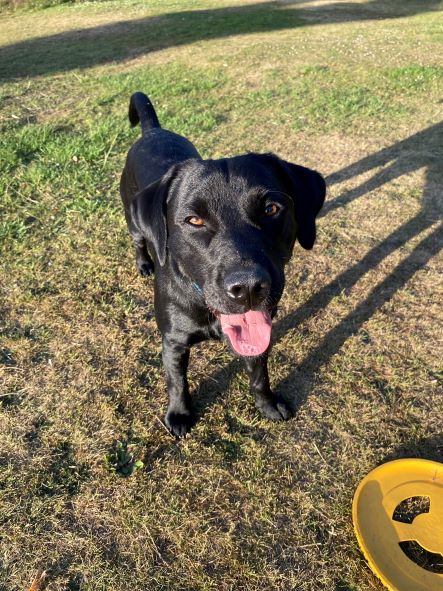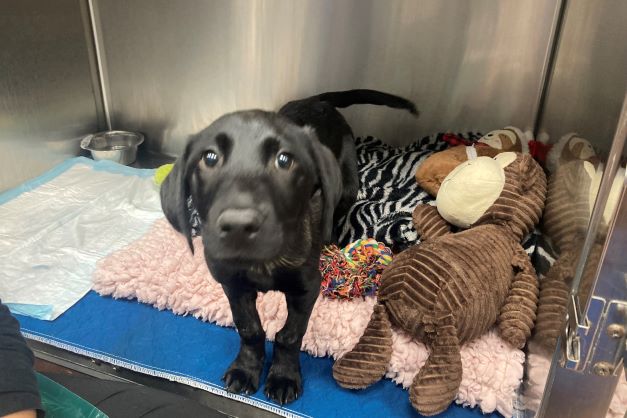The RVC celebrates 10 years of lifesaving treatment
This month, the Royal Veterinary College (RVC) is celebrating 10 years of its life-saving service of extracorporeal therapies for cats and dogs with kidney failure, immune-mediated disease and certain toxicities. The RVC’s Queen Mother Hospital for Animals (QMHA) remains the only place in the UK to offer this specialist service and has so far supported more than 50 dogs and cats.

The QMHA’s service was established in late 2012 with the first treatment taking place in March 2013. This was funded by the RVC’s Animal Care Trust to offer advanced extracorporeal therapies. These pioneering blood purification treatments include dialysis which vitally helps to clear the blood of toxins when the kidneys are failing.
They also offer therapeutic plasma exchange (plasmapheresis) for dogs which is used for some immune-mediated conditions such as immune-mediated haemolytic anaemia (destruction of red blood cells), immune-mediated thrombocytopenia (destruction of platelets) and other conditions that relate to substances circulating in the blood. The service provides versatile options for the management of these conditions and can be tailored to the individual patient.
It's first ever patient was Alba, a one-year-old Labrador. Alba had ‘Alabama Rot’ and presented with skin lesions and an acute kidney injury. Based on the similarities between this condition and other conditions amenable to blood purification, Alba was treated with therapeutic plasma exchange. Alba made a good recovery from this condition, especially significant given the grave outcome for many dogs with this disease.
Some of its more recent patients include Marty, a 10-week-old Labrador puppy. Marty presented with a bacterial infection (leptospirosis) causing acute kidney failure, was no longer producing urine and had signs of liver damage. The renal replacement therapy team initiated emergency dialysis for his kidneys. Following a number of cycles, his kidney values had returned to normal function by the time of discharge, and he had reverted back to his usual bright and excitable temperament.

Oscar, a one-year-old Labrador cross, was also recently presented to the QMHA with concern for leptospirosis and evidence of acute kidney injury. Dialysis was required to support Oscar’s kidneys until he was well enough to be discharged. Oscar has since been participating in a long-term study at the QMHA where they are tracking the recovery of his kidney function following the severe damage to his kidneys. They are pleased to report that 14 months after his first visit, Oscar is doing really well and his kidney function remains normal.
During this past decade of service, the QMHA’s Renal Replacement Therapy Service has not just supported in-need pets. During the Covid-19 pandemic there were shortages of dialysis machines for the treatment of people in intensive care settings, and so the QMHA’s dialysis machine and associated equipment were loaned to the NHS.
Dr Stefano Cortellini, Senior Lecturer in Emergency and Critical Care and Co-director of the Renal Replacement Therapy Service at the QMHA, said:
“We are very fortunate to have the option to treat dogs and cats with acute kidney injury using dialysis at the QMHA. As we’ve seen with Marty and Oscar, this can be literally a life-saving treatment. Providing dialysis is very much dependent on teamwork, and this involves highly coordinated efforts by members of the renal replacement team, critical care clinicians and nurses as well as support from other specialty services at the QMHA. We are delighted that Marty, our most recent case, has made a full recovery and we are looking forwards to updates on his progress in the future!”

Dr Rosanne Jepson, Professor Small Animal Internal Medicine and Nephrology and Co-Director of the QMHA Extracorporeal Therapies Programme, said:
“Our Prismaflex machine offers advanced treatment options not only for the management of acute kidney injury but also enables us to perform a mode of treatment called therapeutic plasma exchange. This has allowed us to manage some of the most severely affected dogs with immune mediated haemolytic anaemia which are failing response to traditional treatment, has been used in patients with CRGV (Alabama Rot) and together can help us manage certain toxin exposures. We are really very lucky to have this facility at the QMHA and to be able to offer this advanced care where it is needed. None of this would be possible without the amazing team who help us run this service. “
For more information, please visit Extracorporeal therapies (Dialysis and Plasmapheresis) (rvc.ac.uk)
Notes to Editors
For media enquiries, please contact:
- jasmin.devivo@plmr.co.uk or rvc@plmr.co.uk
- Press Line: 0800 368 9520
About the RVC
- The Royal Veterinary College (RVC) is the UK's largest and longest established independent veterinary school and is a Member Institution of the University of London.
- It is one of the few veterinary schools in the world that hold accreditations from the RCVS in the UK (with reciprocal recognition from the AVBC for Australasia, the VCI for Ireland and the SAVC for South Africa), the EAEVE in the EU, and the AVMA in the USA and Canada.
- The RVC is ranked as the top veterinary school in the world in the QS World University Rankings by subject, 2022.
- The RVC offers undergraduate and postgraduate programmes in veterinary medicine, veterinary nursing and biological sciences.
- The RVC is a research led institution with 88% of its research rated as internationally excellent or world class in the Research Excellence Framework 2021.
- The RVC provides animal owners and the veterinary profession with access to expert veterinary care and advice through its teaching hospitals and first opinion practices in London and Hertfordshire.
